Will an influx of Californians into Arizona tilt the battleground state's politics?
Published in Political News
SCOTTSDALE, Ariz. — Michele Pitek moved to Arizona from California, her lifelong home, with her husband, Mike, about seven years ago in part because they were tired of struggling with the cost of living in the Bay Area despite both earning six-figure salaries.
Once they settled into a newly built home on more than an acre at the edge of Scottsdale with stunning views of rocky peaks, Pitek, 57, said there were some adjustments: learning to depend on a septic tank, treating well water that contains arsenic, for instance, or seeing John Deere bulldozers pull into the parking lots of shopping centers. But the abundant desert beauty, such as seeing shooting stars streaking over their home nearly every night, hearing coyotes howl and watching hawks swerve overhead, make up for it.
The Piteks are part of an exodus of Californians who have moved to the Grand Canyon State — more than 74,000 in 2022, according to the most recent data available from the U.S. Census Bureau. That’s more than a quarter of the people who moved to Arizona that year and easily the most from any state.
The influx has led to questions about their impact on politics in this once ruby-red state, which is now among a handful of battlegrounds that will determine whether Vice President Kamala Harris or former President Donald Trump wins the White House in November. Trump leads by 1.4 percentage points in an average of recent polling, according to Real Clear Politics.
President Joe Biden won Arizona by fewer than 11,000 votes over Trump in 2020. After the election was called, one of Pitek’s former colleagues from Oakland, California, texted her: “You turned it blue Michele.”
“I wish it was just me,” she said. “Mike and I are true Californians in a lot of ways, and we brought those values with us. We didn’t change. We’re Democrats.”
California is an overwhelmingly Democratic state — Biden won it by more than 29 points in 2020— and it’s the home of many of the nation’s most prominent liberals, most notably Democratic presidential nominee Harris. Yet it is also home to more than 5.5 million registered Republicans, according to the secretary of state’s office.
So it isn’t always easy to discern the partisan preferences of the California expats, who move here for many reasons — growing job opportunities in the tech, semiconductor and other corporate sectors, cheaper housing, lower tax rates, less traffic and frustration with homelessness and crime in the Golden State. But experts say their presence is being felt.
“There’s this general belief among some that Californians are having a progressive effect on the Arizona electorate and there are certainly portions of the state where that’s true,” said Paul Bentz, a Phoenix-based Republican strategist and pollster. “There’s an overall shift where the Valley [of the Sun, the Phoenix metropolitan area] is getting more competitive. But the outskirts and the growing metropolitan areas and suburban areas are getting more conservative.”
Even before the recent flood of Californians into Arizona, there was an ebb and flow between the neighboring states.
Aaron Feller, 52, was born in West Covina but his family moved to Arizona for economic reasons when he was a child.
The registered GOP voter told union canvassers that he planned to back Harris and other Democrats.
“I just think that the choices in the Republican Party are not ideal. They promote hate, and I don’t want to promote hate,” he told Unite Here canvassers who had knocked on his door in the tidy Foothill Acres neighborhood in Phoenix on a recent Sunday as temperatures surpassed 100 degrees. “I want to get stuff done.”
Even before the large number of Californians moved to Arizona in recent years, the state’s politics had been changing. In 2010, Republicans controlled both U.S. Senate seats, every statewide office and held super majorities in both legislative houses.
Now, the governor, secretary of state and attorney general are Democrats, as is one U.S. senator (the other is an independent who was previously a Democrat). Republicans hold two-seat edges in both houses of the Legislature.
But there is palpable frustration among some Arizonans that Californians are changing the state’s politics and culture.
“There is anti-California sentiment,” Bentz said. “ ‘Don’t California my Arizona’ is a very popular and pervasive messaging strategy, particularly for Republicans.”
Patricia Summerland, 59, who moved from Lake of the Woods in Kern County to Glendale, Ariz., last summer, agreed.
“You don’t dare say you’re from California,” said the nurse, recalling walking with her daughter and her daughter’s dog in Scottsdale when they exchanged greetings with an older man who asked them where they were from. Her daughter responded, “California.”
“He says, ‘Why are you here?’ ” Summerland said. “And he goes, ‘Well, that’s Democrat. We don’t want your kind in here.’ And my daughter’s like, ‘Excuse me, I’m a Republican, first of all.’ That was sad, like it made my heart sad. Oh my gosh, how rude, right?”
Summerland grew up in a Democratic family and was a member of the party and voted for Hillary Clinton in 2016 before becoming a full-throated Trump supporter after seeing his governance as president.
“After that, it was Trump, Trump, Trump, because I woke up,” she said. “I read his books. I actually delved into his background. It wasn’t about who he was running a show, you know, on television or anything. It was in depth. And I respect the man, and that’s how I feel. And he’s got my vote.”
Summerland was born in Los Angeles and grew up in the region. Her father was a police officer in Glendale, but after he retired, the family became distributors of The Times.
The spotlight beckoned, and she modeled for companies such as Jordache jeans and danced on “American Bandstand” with Dick Clark, she said. She auditioned for the Gorgeous Ladies of Wrestling, a campy professional women’s wrestling television show that was popular in the 1980s, and said she was cast as one of two actresses to play “Sunny the California Girl.” She also posed for Playboy magazine and held a variety of jobs, including park ranger, before becoming a nurse.
She once loved living in California, but found the state increasingly unaffordable and said she no longer felt safe in recent years. A friend was attacked and raped by someone in the country illegally, she said, and homeless people would scare off customers and smear feces on the large glass walls displaying Bentleys and Rolls-Royces at her daughter and son-in-law’s dealership in Van Nuys.
She recalled pulling into the parking lot of a Target in Valencia and seeing it swarmed by police officers because a smash-and-grab robbery had just taken place.
“I don’t even recognize my state anymore, sadly,” said Summerland, whose two daughters and their spouses moved to Arizona before she did.
While Summerland’s and Pitek’s politics are polar opposites, the two women said they have no regrets about their decisions to leave California.
“I’m a lot happier here,” Summerland said, saying there is less crime and homelessness and she loves the state’s stunning beauty. She plans to celebrate her 60th birthday at the Grand Canyon. “Arizona is beautiful.”
Pitek, who grew up in a small Central Valley town before attending fashion school in New York and working in corporate human resources in the Bay Area, said her California friends tried to dissuade her from leaving, telling her she would never be able to come back because she would be priced out of the housing market.
“Once we stepped foot here, everything just aligned for us,” she said, noting that they bought their sprawling property for less than $700,000 and started a small business providing delivery services for Amazon before the pandemic hit and exponentially increased the number of people who shop online.
The move also introduced them to a different pace of life.
“I have always been into holistic and meditation and nature. My husband’s a little bit more difficult to embrace those different things,” Pitek said. “But now I find him sitting outside early in the morning drinking his coffee and just contemplating God knows what.”
She found it easy to make friends, at first by joining a local Bunco group. Their community sprang into action when Bo, their 8-pound pet desert tortoise, escaped his backyard enclosure. (He was found three days later about a mile away.)
The couple’s politics differ from many of their neighbors’, but it hasn’t created any friction, she said
“Political conversations here can get very heated very quickly, because this is [historically] a strong red state, right?” she said. “But everyone’s really respectful of each other and I’m happy to see that.… Being respectful is important.”
©2024 Los Angeles Times. Visit at latimes.com. Distributed by Tribune Content Agency, LLC.
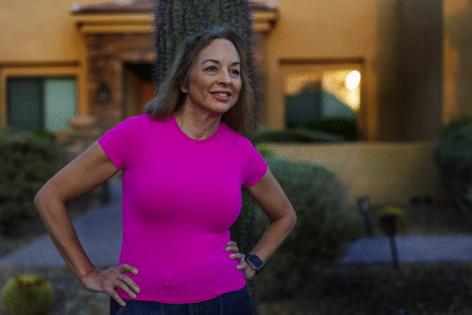
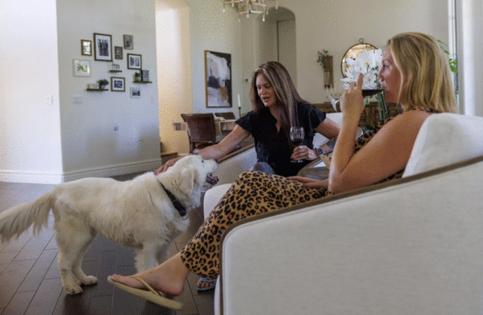
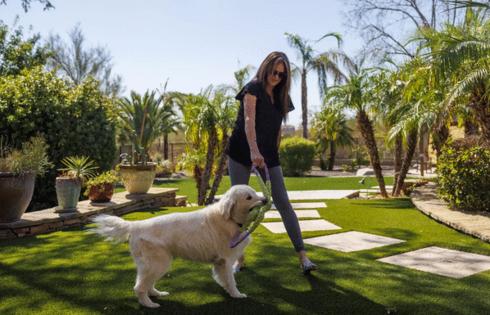
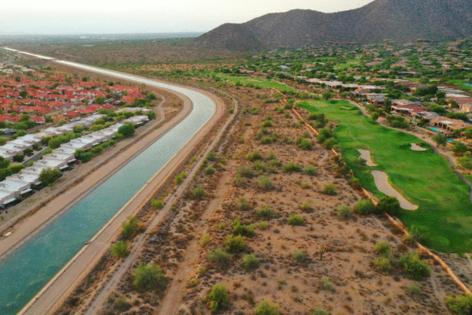
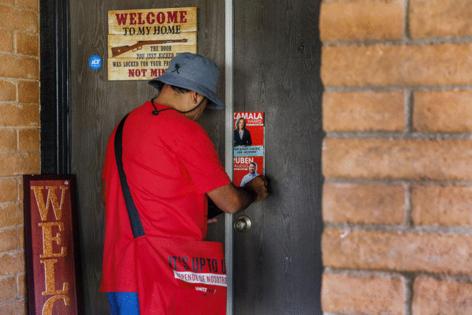
































































Comments